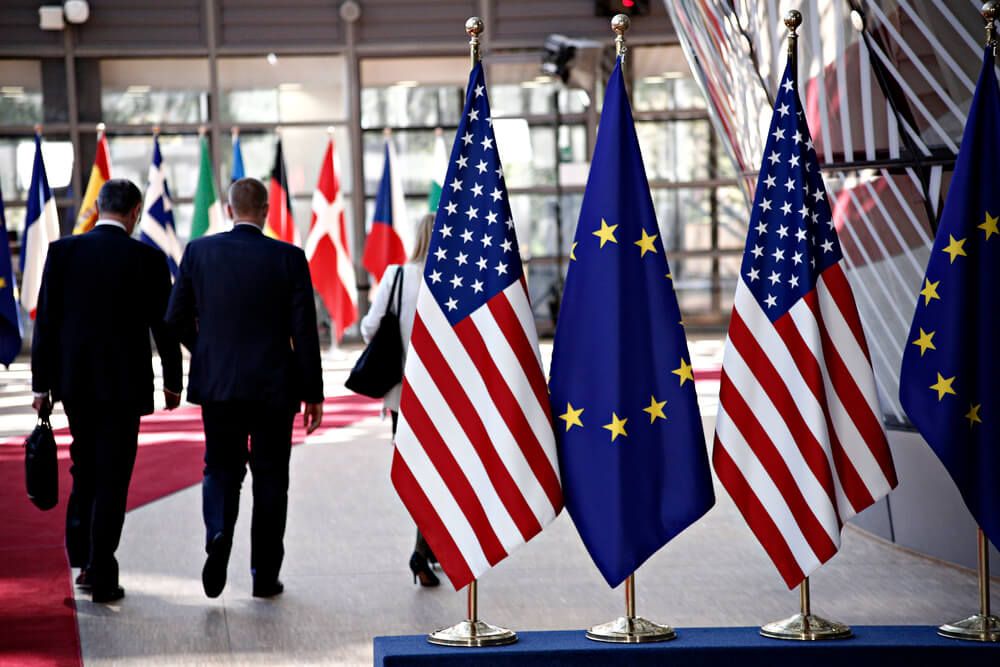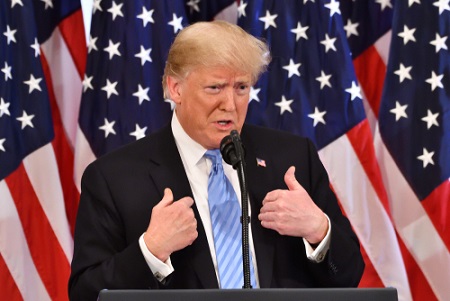Stocks Climb, Euro Strengthens After US-EU Trade Accord

Global markets rise as US-EU pact cuts tariffs to 15%, boosting stocks and strengthening the euro.
Trade talks intensify with a 15% tariff deal between the U.S. and EU, while U.S.-China negotiations face a possible 90-day extension.
Investors await Fed and BOJ policy decisions this week, with oil rising 0.5% and gold falling amid shifting economic sentiment.
Global Markets Gain Momentum Following U.S.-EU Trade Pact
Global equities advanced and the euro strengthened on Monday as the United States and the European Union reached a pivotal trade accord, boosting investor sentiment amid a week packed with crucial central bank meetings by the Federal Reserve and the Bank of Japan. The U.S.-EU agreement sets a 15% tariff on most European imports, significantly lower than the previously threatened 30%, coming shortly after a similar deal with Japan that reduced planned auto tariffs.
This progress toward easing trade tensions has prompted optimism in financial markets,
S&P 500 futures up 0.4%, Nasdaq futures gaining 0.5%, European stock futures increasing by nearly 1%
The euro appreciated against the dollar, sterling, and yen
Japan’s Nikkei slipping 0.8% after recent highs, the broader MSCI Asia-Pacific index edged up 0.27%, approaching a near four-year peak

Trade Negotiations and Market Reactions
The U.S. administration, under mounting pressure to finalize trade agreements before the August 1 deadline set by President Donald Trump, is actively negotiating with major partners, including upcoming talks with China in Stockholm.
The recent U.S.-EU deal imposes a 15% tariff on European goods paired with compelled purchases of American energy and defense products, while Europe agreed to no retaliatory tariffs. Analysts highlight this as a strategic win for the U.S., emphasizing the avoidance of an extensive trade war between two of the world’s largest trading blocs that collectively make up roughly one-third of global commerce.
Asian markets reflected this cautious optimism, with China’s blue-chip shares climbing 0.3% and the Hang Seng Index in Hong Kong rising 0.75%. The Australian dollar, a common indicator of risk appetite, held near an eight-month high at $0.657.

Monetary Policy Watch and Commodity Market Movement
Investor focus now turns to this week's significant policy events, including Federal Reserve and Bank of Japan meetings, alongside key economic data and earnings reports from leading tech firms such as Apple, Microsoft, and Amazon. While both the Fed and BOJ are expected to hold interest rates steady, market participants will closely scrutinize policymakers' guidance. The trade deal with Japan potentially paves the way for Japan’s central bank to hike rates later this year.
Conversely, the Fed appears cautious about lowering rates amid uncertainties over the tariff impact on inflation, despite pressure from President Trump and some Fed Board members advocating for a cut. Inflation data and the July jobs report will be critical in shaping expectations for future policy shifts.
On the commodities front, oil prices climbed modestly by 0.5% following the trade announcement, while gold declined to its lowest level in nearly two weeks as demand for safe-haven assets waned.
* The content presented above, whether from a third party or not, is considered as general advice only. This article should not be construed as containing investment advice, investment recommendations, an offer of or solicitation for any transactions in financial instruments.






